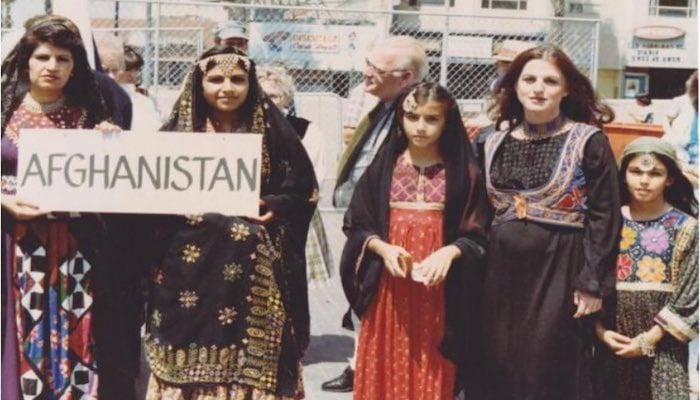#DoNotTouchMyClothes: Afghan women hit back at the Taliban, one picture at a time
Afghan women share photos in traditional Afghan attire, displaying their cultural richness and diversity on Twitter
September 14, 2021

Afghan women across the world are raising their voice against the Taliban's strict new dress code for female students with a powerful social media campaign.
They have taken to social media platform Twitter to post pictures of themselves, their families and friends wearing traditional Afghan dresses to highlight the richness and diversity of their culture. The social media campaign is gaining traction, with #DoNotTouchMyClothes and #AfghanistanCulture trending on Twitter.
The campaign was started by Bahar Jalali, a former history professor at the American University in Afghanistan, to protest the Taliban’s mandatory imposition of Hijab for women.
Recently Taliban’s new higher education minister had announced that female students will be allowed to attend gender-separated classes in universities, but only in proper Islamic dress codes.
Jalali said she started the campaign because one of her "biggest concerns is Afghanistan's identity and sovereignty is under attack", BBC reported her as saying.
She posted a picture of herself on Twitter in a green Afghan dress and urged other Afghan women to share theirs to show "the true face of Afghanistan".
Other Afghan women responded by sharing pictures of themselves in colourful traditional dresses from across the country, in complete opposition to the black hijab mandated by the Taliban.
The head of the Afghan service at DW News, Waslat Hasrat-Nazimi, also shared a photograph of herself wearing an Afghani outfit and a headdress.
Another woman who took part in the Twitter campaign is Malali Bashir, an Afghan journalist based in Prague. She also paints Afghan women in their traditional dresses to "show the world the beauty of our culture".
She told BBC that growing up in her village "a burqa, either black or blue, was never a norm and women wore their Afghan cultural dresses. Older women wore a black head covering and younger ones wore colourful shawls. Women greeted men by shaking hands," she said.
Several other Afghan women supported the trend on Twitter:











